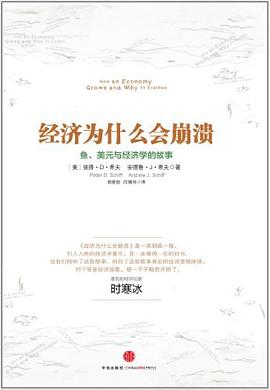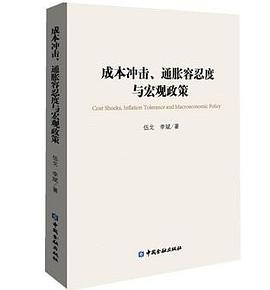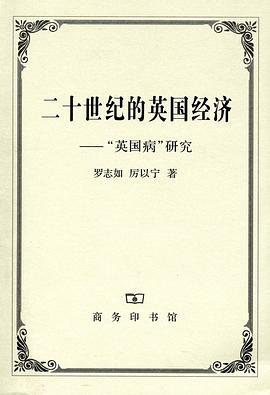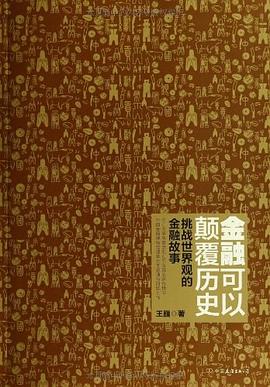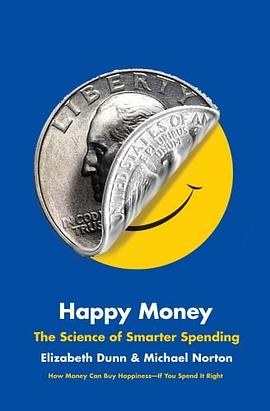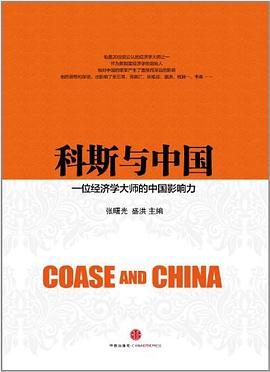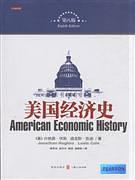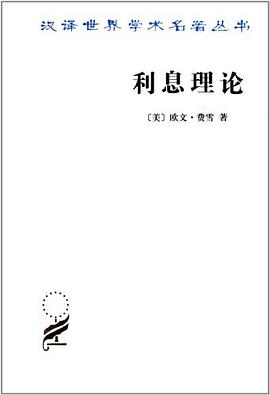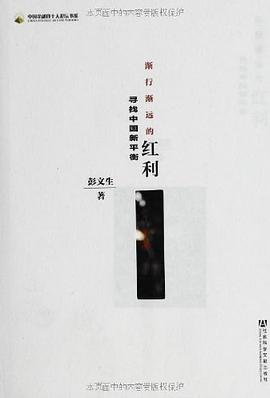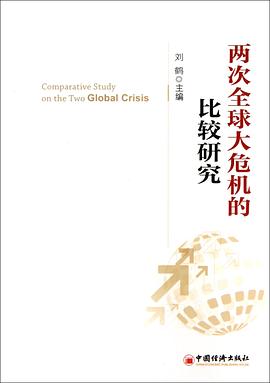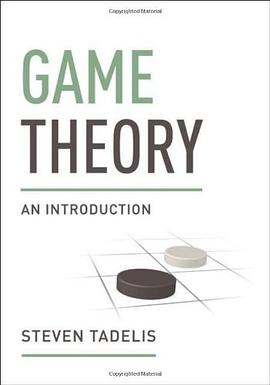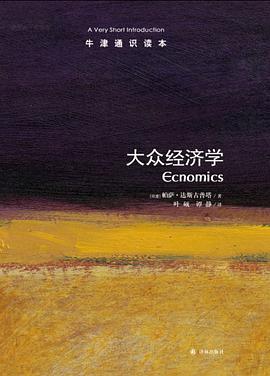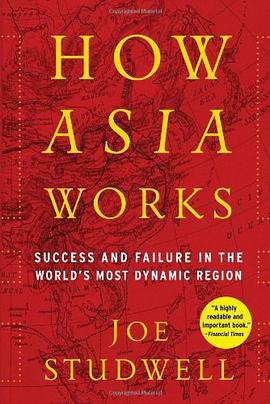

具体描述
In the 1980s and 1990s many in the West came to believe in the myth of an East-Asian economic miracle. Japan was going to dominate, then China. Countries were called “tigers” or “mini-dragons,” and were seen as not just development prodigies, but as a unified bloc, culturally and economically similar, and inexorably on the rise.
Joe Studwell has spent two decades as a reporter in the region, and The Financial Times said he “should be named chief myth-buster for Asian business.” In How Asia Works, Studwell distills his extensive research into the economies of nine countries—Japan, South Korea, Taiwan, Indonesia, Malaysia, Thailand, the Philippines, Vietnam, and China—into an accessible, readable narrative that debunks Western misconceptions, shows what really happened in Asia and why, and for once makes clear why some countries have boomed while others have languished.
Studwell’s in-depth analysis focuses on three main areas: land policy, manufacturing, and finance. Land reform has been essential to the success of Asian economies, giving a kick start to development by utilizing a large workforce and providing capital for growth. With manufacturing, industrial development alone is not sufficient, Studwell argues. Instead, countries need “export discipline,” a government that forces companies to compete on the global scale. And in finance, effective regulation is essential for fostering, and sustaining growth. To explore all of these subjects, Studwell journeys far and wide, drawing on fascinating examples from a Philippine sugar baron’s stifling of reform to the explosive growth at a Korean steel mill.
Thoroughly researched and impressive in scope, How Asia Works is essential reading for anyone interested in the development of these dynamic countries, a region that will shape the future of the world.
作者简介
Joe Studwell is the founding editor of the China Economic Quarterly. A freelance journalist in Asia for over twenty years, he has also written for the Economist Intelligence Unit, The Economist, The Financial Times, The Asian Wall Street Journal and the The Far Eastern Economic Review. He is the author of The China Dream and Asian Godfathers.
目录信息
读后感
打开这本书其实是带着目的来的,对于辞工休息阶段的我来说,看点经济相关的书,是为了可以更大几率地去选到一条对的路。然而这本书带给我的不是这个,是从一个更宏观的角度,告诉我经济的玩家是国家,并不是个人,这一刻我无比地希望中国可以走出一条康庄大道,因为真的只有这...
评分观点清晰,论证可信。说到中国的时候,作者还没有预见到互联网中国的努力,还是把视线投射在农业、制造业,金融,政策,国企上。这不能怪作者,谁都预见不了下一个经济增长点是什么。关于中国,他的视角我看还是公允平衡的。 1、农业,联产承包责任制大家都说好,从农民到学者...
评分书后的评论是写得很好, 摘录如下: “叙述深入翔实,引人入胜。” 彭博社广播 “简洁有力,智性十足,立论坚实,观点极具说服力,而且风格强悍。高度精彩的重要之作。” 金融时报 日本,南韩,台湾,印尼,马来,泰国,菲律宾,越南,以及中国——亚洲九国。 经济上为何有...
评分故事讲的挺好的,理论构建的太差了。亨廷顿在《变化社会中的政治秩序》里构建的理论吊打这本书。 作者对政治的理解也太简单了吧。东南亚的经济落后仅仅是因为经济政策的错误吗?作者有没有考虑过一个问题:以东南亚国家的政府低下的执政能力,这些政府其实是没有能力选择他所说...
用户评价
说实话,在拿到这本书之前,我并没有对“亚洲经济如何运作”这个问题有过特别系统性的思考。但读完之后,我感觉自己打开了一个全新的视野。这本书的独特之处在于,它并没有将亚洲简单地视为一个同质化的经济体,而是非常细致地描绘了各个国家在不同历史时期所经历的转型和演变。 我印象特别深刻的是,作者在探讨亚洲经济增长背后的驱动力时,提到了“国家资本主义”这个概念。他分析了在一些亚洲国家,政府在经济发展中扮演了多么关键的角色,如何通过引导投资、扶持产业、甚至是直接参与市场竞争来推动经济增长。这与我在西方经济学课本上学到的自由市场理论有着很大的不同,让我对经济发展的多样性有了更深的认识。 书中对“亚洲四小龙”以及中国大陆的经济崛起过程的描述,都非常引人入胜。作者不仅仅是罗列了GDP的增长数字,而是深入分析了它们在不同阶段所面临的挑战,比如如何从低附加值的制造业转向高附加值的产业,如何应对贸易摩擦,以及如何处理国内的贫富差距问题。 我尤其欣赏作者在分析这些复杂问题时所展现出的客观性和审慎态度。他并没有简单地赞美亚洲的成功,而是也指出了其中存在的潜在风险和挑战,比如环境问题、资源约束以及社会不公等。这种平衡的视角,让这本书更具说服力和可信度。 这本书给我最大的启示是,理解一个经济体的运作,不能仅仅关注其经济指标,更要深入理解其背后的历史、文化、政治和社会结构。亚洲经济的成功,是多种因素共同作用的结果,而这本书正是试图将这些复杂的因素梳理清楚,呈现给读者。 总的来说,这本书的阅读体验非常棒,它不仅提供了丰富的知识,更重要的是激发了我对亚洲经济发展的深入思考。我强烈推荐这本书给那些希望全面了解亚洲经济崛起背后逻辑的读者。
评分这本书我断断续续读了挺久,总算是在最近完成了。坦白说,一开始我抱着很大的期待,毕竟“How Asia Works”这个书名本身就充满了吸引力,它承诺要揭示亚洲经济腾飞的秘密,这对于任何一个关心全球经济格局的人来说,都是一个极具诱惑力的主题。然而,在我深入阅读的过程中,我发现这本书更像是一次宏大的叙事,它试图用一种宏观的视角来描绘亚洲在过去几十年里发生的巨大变化。作者花了大量的篇幅去讲述各个国家的发展历程,从日本战后重建的奇迹,到韩国的“汉江奇迹”,再到东南亚经济体的崛起,最后触及中国令人瞩目的经济增长。 在阅读过程中,我被作者对历史事件的梳理和对经济数据的分析所吸引。他不仅仅是简单地罗列事实,而是努力地去挖掘背后的原因,试图找出那些能够解释亚洲如何“运作”的深层动力。我尤其对书中关于国家政策、制度设计以及国际合作在亚洲经济发展中所扮演的角色部分印象深刻。例如,他深入探讨了韩国在汽车和电子产业上的发展策略,以及新加坡如何通过吸引外资和发展金融服务业来实现经济的腾飞。这些案例分析让我对亚洲国家在不同发展阶段所面临的挑战和采取的应对措施有了更清晰的认识。 然而,这本书也并非没有让我感到困惑的地方。在我看来,作者有时过于强调某些因素,而对其他可能同样重要的因素则有所忽略。例如,在谈论到亚洲的劳动力优势时,他似乎将这种优势描述得过于简单化,而没有深入分析劳动力市场本身的复杂性,比如技能的匹配、工会的作用以及劳动权益的保障等等。此外,尽管书名是“How Asia Works”,但对“亚洲”的定义似乎也有些模糊,更多的时候,书中的例子集中在东亚和东南亚,而对南亚和中亚的一些重要经济体则着墨不多。 更重要的是,在我读到关于亚洲在科技创新和全球产业升级中的地位的部分时,我感到作者的论述可以更加深入。他提到了亚洲在制造业领域的强大实力,以及部分国家在科技领域的追赶,但我希望能看到更多关于亚洲本土科技企业如何在全球舞台上崭露头角,以及它们在核心技术研发和知识产权保护方面所面临的机遇与挑战的更细致的分析。虽然书中不乏对亚洲经济成就的赞美,但我认为,对于亚洲经济体系的“运作”机制,还需要更具批判性的视角,去探讨其潜在的风险和可持续性问题。 总而言之,这本书提供了一个观察亚洲经济发展的宏大视角,它梳理了大量的历史和经济信息,对于了解亚洲整体的经济轨迹非常有帮助。它像是一张巨大的地图,勾勒出亚洲经济发展的轮廓。但正如一张地图不可能包含所有细节一样,这本书在某些方面也显得有些粗糙。对于那些希望深入了解亚洲经济发展细节、或是希望找到针对特定国家或行业分析的读者来说,可能需要结合其他更专业的书籍来补充。对我个人而言,这本书是一次有益的阅读体验,它拓展了我的视野,但同时也引发了我更多关于亚洲经济未来的思考。
评分这本书的内容让我眼前一亮,它提供了一个全新的视角来理解亚洲的经济发展。我一直以来对亚洲的经济崛起充满好奇,但很多时候看到的分析都停留在表面,而这本书则深入挖掘了背后更深层次的机制。作者非常擅长将宏观的经济理论与具体的国家案例相结合,使得枯燥的经济学概念变得生动有趣。 我特别喜欢书中对不同国家发展模式的比较分析。他没有简单地将亚洲国家一概而论,而是细致地剖析了日本、韩国、新加坡、台湾,甚至是中国大陆在不同时期所采取的独特发展路径。这些案例分析让我看到了,尽管同属亚洲,但各国在发展战略、政策选择以及文化背景上都存在显著差异,而正是这些差异造就了它们各自的成功或失败。 例如,书中关于韩国发展半导体产业的章节,我读得津津有味。作者详细阐述了韩国政府如何通过产业政策、技术引进和教育投入,一步步建立起在全球半导体领域举足轻重的地位。这让我深刻理解到,国家层面的战略规划和长期投入对于一个产业的崛起是多么重要。 同时,我也认为作者在分析亚洲经济中的“制度”因素时,做出了非常有见地的论述。他不仅关注经济政策,还探讨了政治稳定、法治建设、教育体系以及社会文化等非经济因素如何共同作用,影响了亚洲国家的经济发展轨迹。这种多维度的分析,让我对亚洲经济的理解更加全面和深刻。 总的来说,这本书给我带来了很多启发。它不仅仅是一本关于经济学的书,更是一本关于发展、关于国家建设的深刻反思。它让我看到了亚洲在过去几十年里所取得的巨大成就,也让我对未来亚洲经济的发展充满了更多的期待和思考。我非常推荐这本书给任何对亚洲经济感兴趣的读者,它绝对会让你收获良多。
评分我最近刚读完一本关于亚洲经济的书,名字是《How Asia Works》。这本书给我最深的印象是它对“亚洲”这个概念的广阔视野。它并非仅仅聚焦于东亚的那几个经济强国,而是将目光投向了更广阔的亚洲大陆,包括一些过去我可能不太关注的区域和国家。 作者在梳理亚洲各国发展脉络时,非常注重历史的纵深感。他会追溯到更早的时期,分析那些影响了今天亚洲经济格局的历史性事件和制度设计。这种宏观的视角让我能够更好地理解当下亚洲经济的特点,并从中找到一些历史的线索。 我尤其被书中关于亚洲在后殖民时代如何重塑自身经济体系的章节所吸引。作者探讨了在摆脱殖民统治后,亚洲各国如何根据自身的国情和文化,探索出适合自己的发展道路。这其中充满了挑战和艰难的选择,而作者对这些过程的细致描绘,让我对亚洲国家的韧性和创造力有了更深的认识。 书中的案例分析也非常丰富。从日本的工业化奇迹,到东南亚国家如何利用自身资源优势发展经济,再到南亚地区正在发生的经济变革,作者都进行了深入的探讨。我从中看到了亚洲经济发展的多样性,以及各国在不同发展阶段所面临的独特机遇和挑战。 读这本书的过程,更像是一次跨越时空的亚洲经济探索之旅。我仿佛置身于各个亚洲国家的经济现场,亲历着它们的崛起与转型。它让我对亚洲经济的理解不再是碎片化的信息,而是形成了一个相对完整的图景。 总的来说,这本书是一次令人耳目一新的阅读体验。它不仅提供了丰富的知识,更重要的是帮助我建立了一个更广阔、更具历史纵深的亚洲经济观。对于任何希望深入了解亚洲经济发展的人来说,这本书绝对不容错过。
评分阅读《How Asia Works》的过程,就像是在解构一个复杂而迷人的谜题。这本书并没有简单地提供一个“秘方”来解释亚洲的经济成功,而是通过一种更加 nuanced(细致入微)的方式,去剖析那些构成亚洲经济独特性的因素。 我非常喜欢作者在分析亚洲经济发展时,所使用的那种“非线性”的视角。他没有试图将所有亚洲国家的发展模式都纳入一个固定的框架,而是承认了它们之间的差异性和复杂性。例如,在探讨“国家干预”在亚洲经济中的作用时,他细致地分析了不同国家在干预的程度、方式以及效果上的区别,避免了简单化的标签化。 书中对“亚洲价值观”与经济发展之间关系的探讨,也让我颇有启发。作者并没有将“亚洲价值观”神秘化或妖魔化,而是尝试去理解它们如何在具体的经济实践中发挥作用,以及在现代化的过程中如何发生演变。这种跨文化的分析,让我对亚洲经济的理解更加深刻。 我尤其对书中关于亚洲在国际贸易和全球供应链中所扮演角色的分析感到印象深刻。作者不仅描述了亚洲作为“世界工厂”的地位,还探讨了它们如何在全球价值链中不断向上攀升,以及在这种过程中所面临的挑战,比如技术壁垒、贸易保护主义以及地缘政治风险。 这本书给我的感觉是,它并没有试图给出最终的答案,而是引导读者去进行更深入的思考。它提出了很多问题,并提供了丰富的案例和数据来支持这些问题,但最终的判断和结论,还是留给了读者自己去形成。 总而言之,这本书是一本需要细细品味的佳作。它提供了很多关于亚洲经济运作的深刻洞见,并且以一种非常吸引人的方式呈现出来。它让我对亚洲经济的理解,从一个表面的观察者,变成了一个更加深入的思考者。我非常享受这次阅读过程。
评分从另一个角度看贸易保护主义。
评分据说是bill gates本年度5本推荐书之一。。。我也推荐,文笔清晰易读,恰到好处的介绍了所谓亚洲的几个发展“模式”,很有趣。
评分本书得出的三大成功发展的诀窍虽简单明了,但对东北亚阵营(中、日、韩、台)及东南亚阵营(马、菲、泰、印尼)八个国家在发展型国家道路上各自的利弊得失做了生动翔实的描述和较为深入的比较分析,对这八个国家或其他后发国家的民众来讲还是值得看一下的。P.S. 繁体中文版将于明年一月出版,敬请期待!
评分刚开始看。但我觉得很通熟易懂,而且不带任何意识形态偏见。
评分Export discipline 推动产业升级
相关图书
本站所有内容均为互联网搜索引擎提供的公开搜索信息,本站不存储任何数据与内容,任何内容与数据均与本站无关,如有需要请联系相关搜索引擎包括但不限于百度,google,bing,sogou 等
© 2026 book.quotespace.org All Rights Reserved. 小美书屋 版权所有


